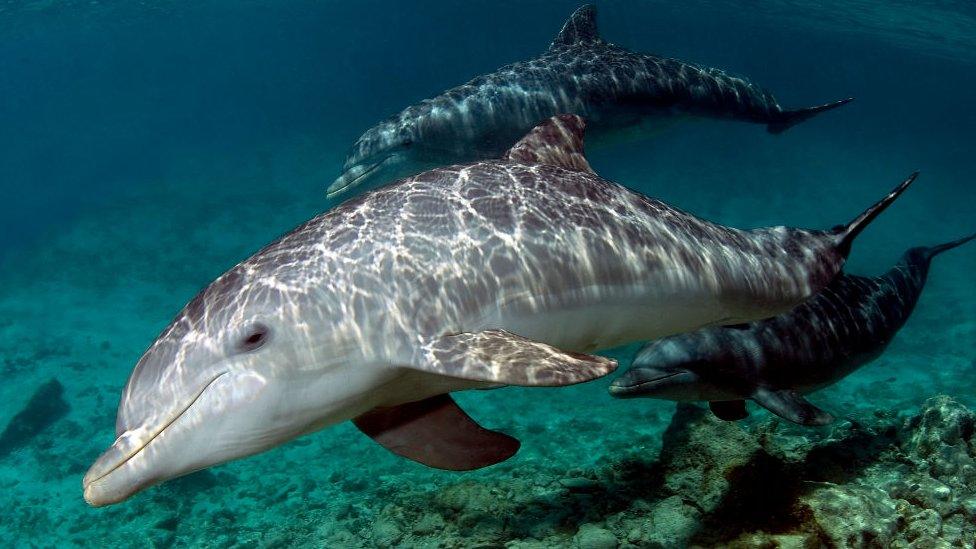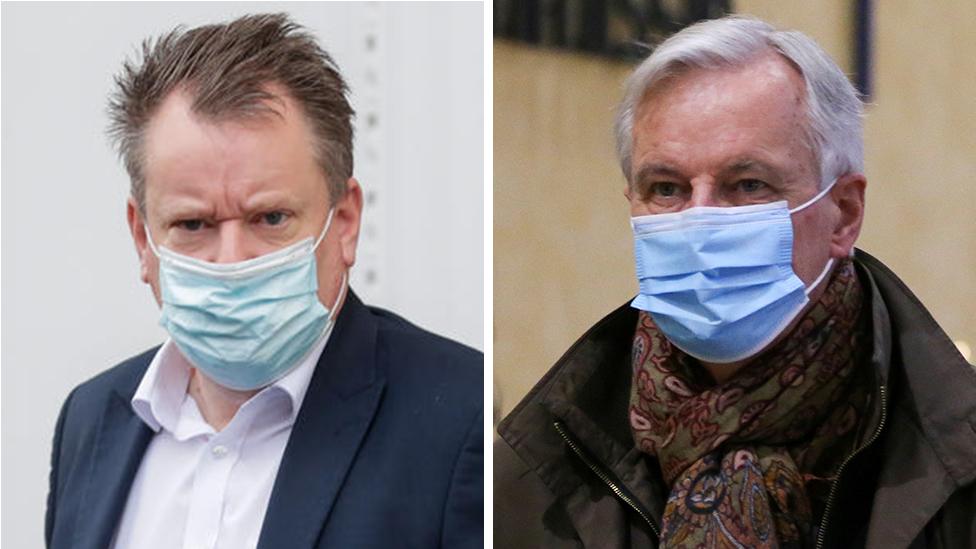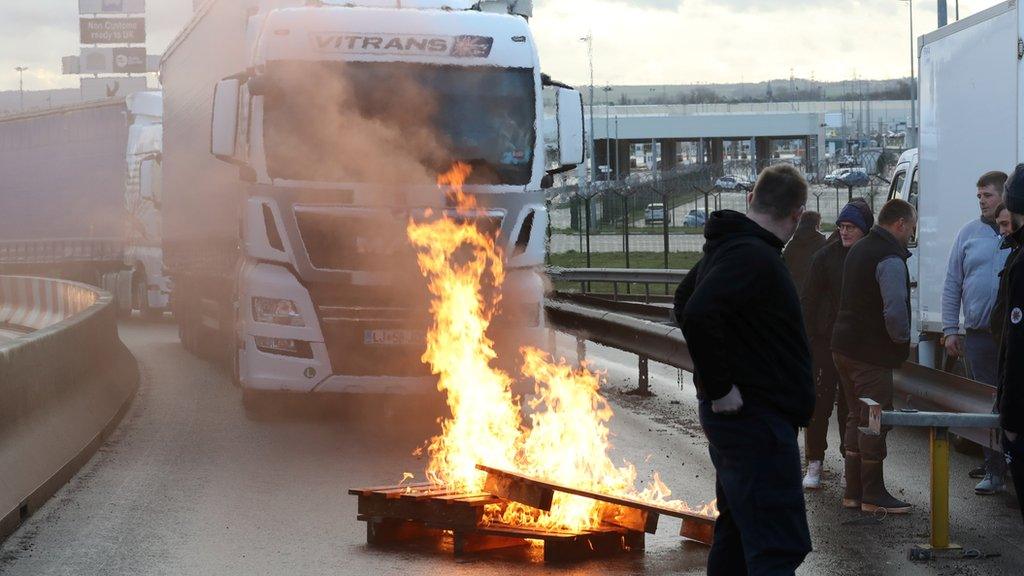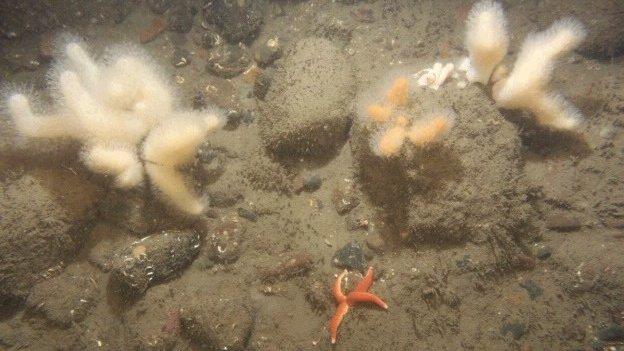Foreign trawlers accused of 'ecocide' as Brexit deadline looms
- Published

Supertrawlers pose a deadly threat to dolphins, which can drown in their nets, conservationists say
Foreign supertrawlers are committing "marine ecocide" in the English Channel as the Brexit deadline nears, conservationists have said.
Blue Seas Protection said as many as nine of the world's largest trawlers were operating in conservation areas south east of the Isle of Wight.
Their arrival was "an act of last minute defiance and destruction" before the transition period ends, it said.
The government said the trawlers were allowed to operate under current laws.
Capt Garry Oates, of the Isle of Wight-based charity, said as well as decimating fish stocks, the trawlers posed a deadly threat to other marine species such as dolphins.
"We absolutely believe it's a clear message and an act of last minute defiance and destruction of our fish stock," he said.
"This is marine ecocide."
He said the vessels - mostly from The Netherlands - being allowed to operate within protected areas such as UK's Marine Conservation Zones (MCZs) was "an utter travesty" and "making the UK a laughing stock".
The operation of the factory ships, which arrived more than three weeks ago, was "totally unsustainable and wholly immoral", he added.

Currently, 60% of the fish caught in English waters is landed by foreign boats
The Department for Environment, Food and Rural Affairs (Defra) said the Marine Management Organisation had been monitoring the vessels and boarded one of them earlier this month for inspection, but "found no infringements".
It added MCZs were not designed to safeguard "highly-mobile" fish stocks, and the types of trawlers operating there did not damage the seabed, which the zones aim to protect.
A Defra spokesman said: "When the [Brexit] transition period ends, we will be able to restrict the fishing activities of foreign vessels, including supertrawlers, throughout our waters."
Blue Seas Protection has called on the United Nations to ban the ships and such trawling internationally.

What will Brexit mean for fishing rights?
After the end of the Brexit transition period on 1 January, the UK will have control over who can fish in its waters.
Until then, it is bound by the Common Fisheries Policy, which allows vessels from EU countries full access to each other's waters.
But, as most of the fish landed by UK fishermen is exported to the EU and most of the fish eaten in the UK is imported, any future deal could see the UK agree to a return of foreign fleets in exchange for free trade.
In the meantime, the Ministry of Defence (MoD) has said four Royal Navy patrol boats are ready to protect UK fishing waters.

Follow BBC South on Facebook, external, Twitter, external, or Instagram, external. Send your story ideas to south.newsonline@bbc.co.uk, external.
- Published14 December 2020

- Published23 December 2021

- Published17 January 2016
